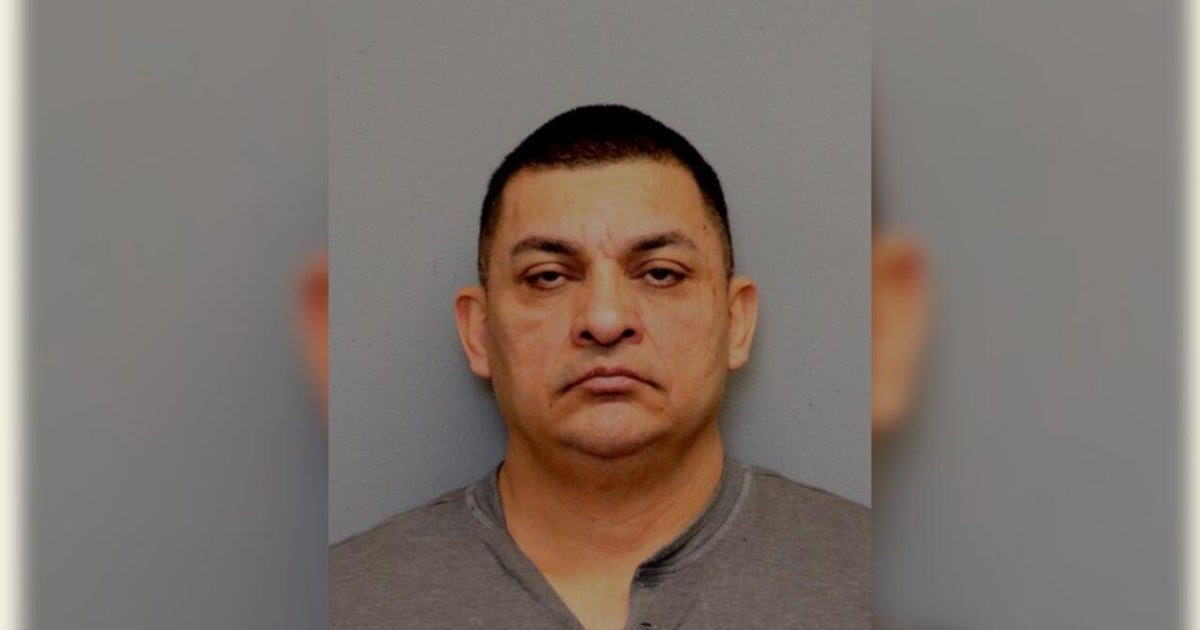Seniors Becoming More Likely To Lose Life Savings To People They Trust, Officials Say
CHICAGO (CBS) – Seniors are becoming a growing target of financial fraud, fleeced of their life savings and often victimized by somebody they know.
The numbers are enormous. One study found the elderly lost $3 billion nationally to financial fraud in 2010.
The Cook County Public Guardian says it is a "huge" problem, yet the state lacks a law to protect the elderly from potential fraud. Often, their money is stolen by friends, or, in one case, allegedly by a former priest, CBS 2 Investigator Pam Zekman reports.
Ollie Smith had lung cancer and advanced dementia as he neared the end of his life.
After fighting in the Korean War, Smith settled in the Park Manor neighborhood. He collected a $4,200 monthly pension from his days working at the Chicago Public Schools, according to his nephew, Paul Barnett.
When Uncle Ollie recently died, Barnett took possession of the estate and noticed suspicious activity on a bank account he shared with his uncle.
'"There were a lot of checks for cash for $5,000, just written out to cash," Barnett said.
By Barnett's analysis, the checks in question totaled more than $100,000--all signed "Ollie Smith."
Those checks, according to Barnett, were actually written by Robert Griffin, even though Griffin did not have power of attorney. Griffin often would help Smith with household chores or shopping, Barnett said.
Griffin would not comment on camera but did acknowledge twice during phone conversations that he signed Ollie Smith's name on the check. Griffin claims that Smith asked him to sign the checks because Smith was no longer able to do it himself. Griffin claims he used the money to pay Smith's bills, but could not provide a detailed accounting of the funds.
Barnett says his uncle's expenses were unremarkable, such as food, gasoline and utilities.
Barnett also discovered Griffin became the beneficiary on a $10,000 Veterans Administration insurance policy. After Barnett alerted the VA, the agency ruled Smith's name was forged and gave the money to Barnett.
Griffin claimed in a phone conversation that Smith told him to make Griffin the beneficiary.
Barnett says he definitely thinks Griffin took advantage of his uncle's dementia.
"It's called undue influence," Barnett said.
Barnett is also concerned about another issue. His name was on his uncle's account at Hyde Park Bank, but he was never notified of the large withdrawals for cash. Barnett had been living in Colorado for 10 years before his uncle's death and was never sent duplicate statements.
A spokeswoman for Hyde Park Bank said she could not comment on specific bank procedures, adding the bank takes elderly abuse very seriously and provides training for their staff.
Cook County Public Guardian Charles Golbert said taking financial advantage of the elderly is a "huge" problem and "it's growing and it's continuing to grow,"
It's Golbert's job to protect the money and property of those who cannot do it themselves and have no one else to help.
"Today with the aging baby boomers, robbing older people is a lot easier than robbing banks and it's where the money is today," said Golbert.
About 40 percent of the new cases in the Public Guardian's office involve financial theft of the elderly.
Such as a case involving Symphony Nursing Home of Lincoln Park.
"A worst-case because of the top to bottom level of corruption," Golbert said.
Grace Watanabe suffers from dementia. According to a civil suit filed by the public guardian's office on Watanabe's behalf, staff members at the Symphony Nursing Home stole more than $700,000 by forging her name on checks.
"They were really preying on her and trying to make her feel terrible about having money and not sharing with them," said Dawn Lawkowski-Keller of the Public Guardian's office.
Watanabe said it was not her signature on the checks and said the whole matter left her "angry and just terribly disappointed."
Nellie Bridgeman is 96 years old, and she also suffers from dementia. In another lawsuit, the Public Guardian's office alleged she was fleeced out of $500,000 by Nicholas Chervyatiuk, a former priest at Bridgeman's Ukrainian Orthodox church. The case was settled for $330,000.
"I figured if you can't trust a priest who can you trust?" said Bridgeman.
Chervyatiuk is charged with theft and is awaiting trial.
Unlike about half the states, Illinois does not have a law requiring banks to report suspected elder financial abuse.
The Cook County Public Guardian's office says such a law would help stop these types of cases much earlier.
"Illinois is behind the curve on this," said Golbert. "Every time it's been proposed the bank lobbyists have knocked it down."
The Illinois Bankers Association, which represents banks in the state, said in a statement:
"The financial industry treats the issue of financial exploitation and related fraud and abuse extremely seriously."
However, the association asserts, "Mandating this kind of reporting ... would result in over-reporting on customers, violating the customers' expectations of trust and privacy regarding their financial transactions and status."
Golbert pulled no punches when asked what he thought of people who try to take advantage of the elderly or people with dementia and Alzheimer's.
"They're scum; they're also cowards," he said. "Don't pick on people with dementia."
Chicago Police are investigating Barnett's claims regarding his uncle's money.
The Symphony Nursing Home says its representatives contacted law enforcement after learning about the incident with Watanabe and are cooperating with the investigation.
They added that the employees named in the public guardian's lawsuit are no longer working at the nursing home.
Experts say the best advice is for family members to keep an eye on the financial records of loved ones who are vulnerable to this type of problem.







